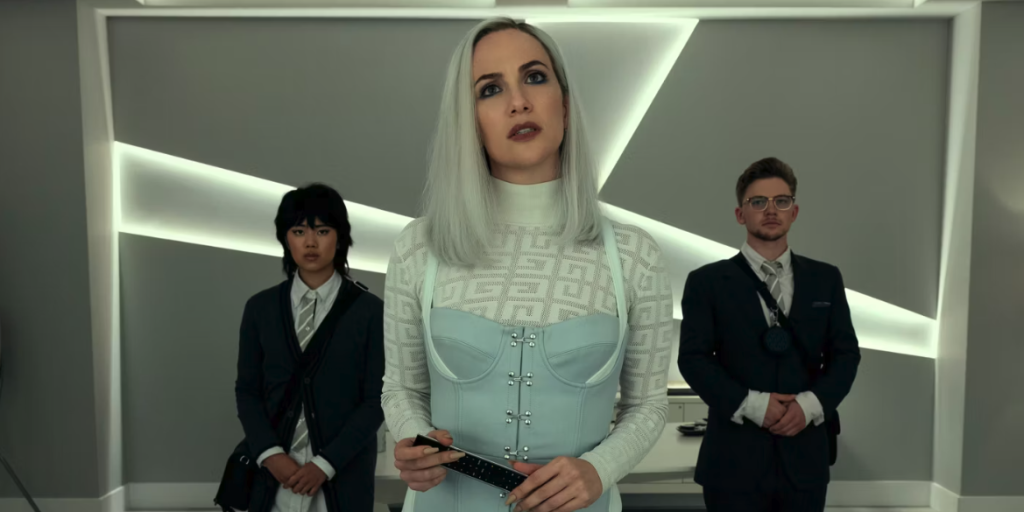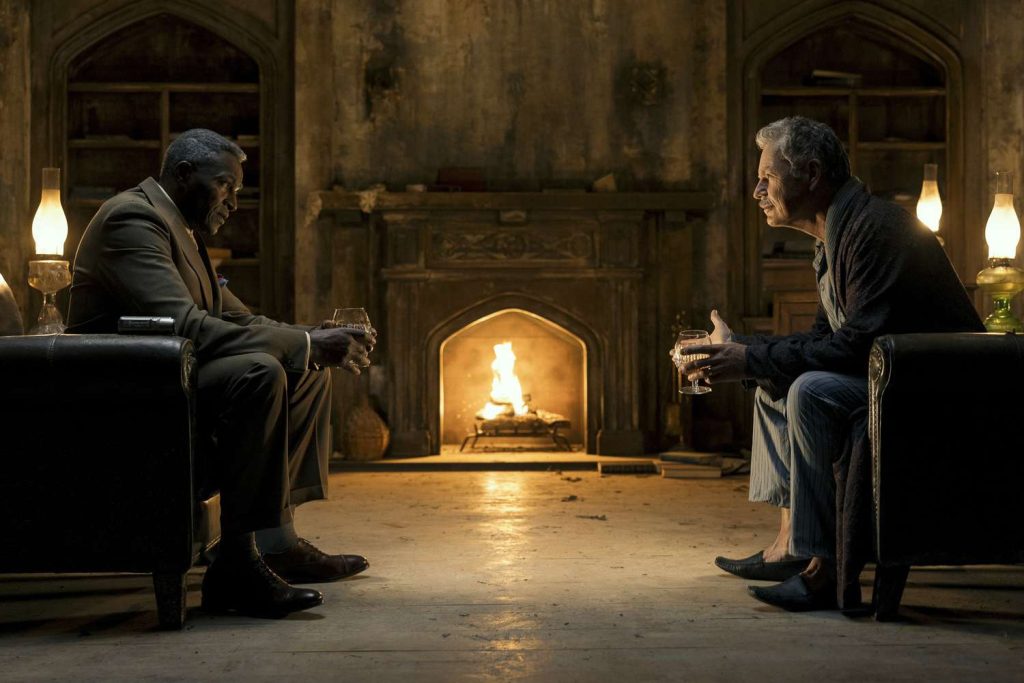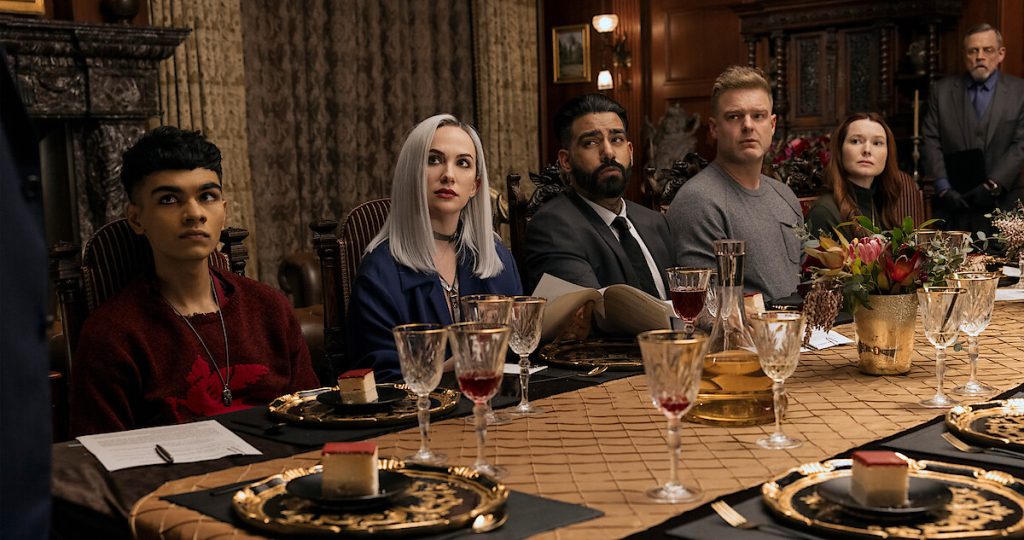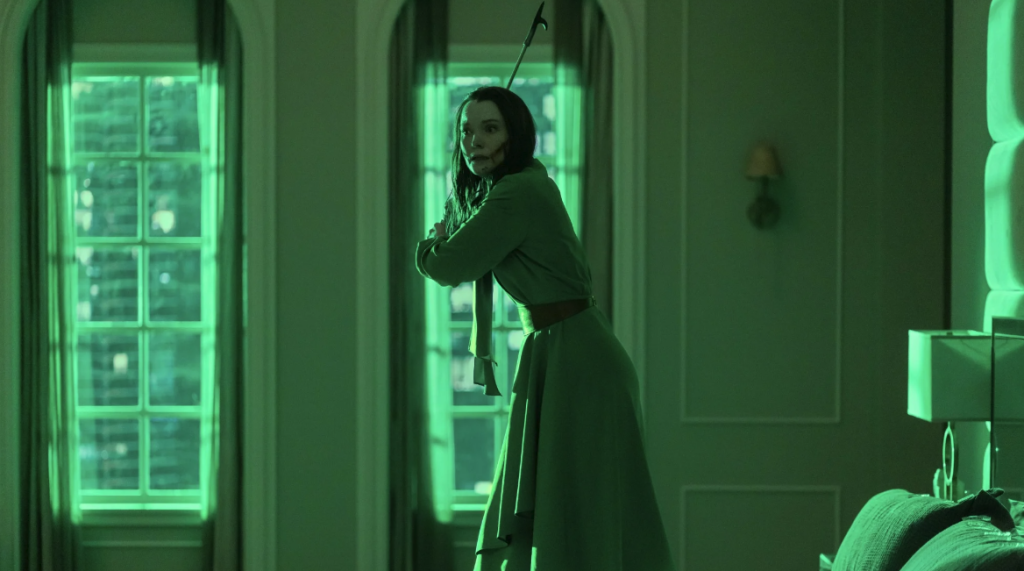Master of the macabre, Edgar Allen Poe, has blessed the horror genre for nearly 200 years. His iconic works include “The Raven,” “The Black Cat,” “The Tell-Tale Heart,” among many others. The complete works of Edgar Allen Poe has served as an endless well for film and television adaptations for decades now. So, it’s no surprise that one of the most prolific horror directors, Mike Flanagan, decided to adapt nearly all of Poe’s iconic short stories in to one hodgepodge of a limited series.
The critically acclaimed writer and director is best known for his “Haunting of…” anthology as well as 2021’s breakout slow-burn horror series “Midnight Mass.” Flanagan is no stranger to adapting well known horror properties, and his recent development of Poe’s literary works stands to be his most ambitious concoction yet. Flanagan’s “The Fall of the House of Usher,” weaves a web of Poe’s notable short horror stories into a somewhat cohesive eight episode narrative.

Centering on the Usher family in the midst of a tragic period of loss, the audience is privy to a long and winding confession that occurs between Roderick Usher (Bruce Greenwood) and Councilman Auguste Dupin (Carl Lumbly) in the ruins of Usher’s family home. The Usher dynasty is one born of death and deceit, their claim to fame arising from the corruption of the pharmaceutical industry. The tale of the Usher legacy spans eight episodes, each chronicling the gruesome death of one of the Usher children at the hands of a mysterious woman along the way. Flanagan weaves the major plot points of several of Poe’s most notorious horror stories in an all encompassing greater story arc within “The Fall of the House of Usher,” managing to touch upon issues such as the opioid epidemic, feminism, and nepotism.

As the legacy of the Usher family unwinds before our very eyes, audiences are treated to a modern retelling of some of Poe’s famous works. While the series itself twists and turns in the most meandering of ways, the one common through line seems to be the raven. Played by Carla Cugino, Verna, a.k.a the raven, a.k.a. the Devil’s right hand, comes to collect the debt she is owed after endowing the Usher siblings in exorbitant wealth and power. As Verna picks off the Usher legacy one by one, the story devolves into a rather agonizingly slow and repetitive nature. While the kills are creative, gory, and respectful to the source material, it’s around the fourth death of an Usher descendent is that one grows a bit weary of the formula.

Flanagan has a unique flair for modern horror, managing to scare the living daylights out of even the toughest of horror fanatics. He often excels in regards to quiet horror, but in “The Fall of the House of Usher” Flanagan resorts expensive jump scares and cheep looking gore. While the terror of his other productions often lays in the background of the frame, in “The Fall of the House of Usher” the real horror lies more within the nature of the characters than anything else.

It’s always a treat to see what latest offering Flanagan has brought to the table, and although he routinely dips into the same pool of actors from project to project, “The Fall of the House of Usher” leaves very, very little to be desired in the way of a powerful Flanagan narrative. And, while Poe’s body of literary work is iconic and has withstood the test of time, “The Fall of the House of Usher,” will not.
You can stream all of “The Fall of the House of Usher” on Netflix.



